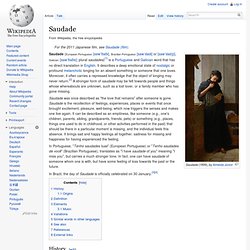

01.31.2006 - Language affects half of what we see - StumbleUpon. UC Berkeley Press Release Language affects half of what we see By William Harms, University of Chicago, and Robert Sanders, UC Berkeley Media Relations | 31 January 2006 BERKELEY – The language we speak affects half of what we see, according to researchers at the University of California, Berkeley, and the University of Chicago.

Scholars have long debated whether our native language affects how we perceive reality - and whether speakers of different languages might therefore see the world differently. The idea that language affects perception is controversial, and results have conflicted. A paper published this month in the journal Proceedings of the National Academy of Sciences supports the idea - but with a twist. The paper, "Whorf Hypothesis is Supported in the Right Visual Field but not in the Left," is by Aubrey Gilbert, Richard Ivry and Paul Kay at UC Berkeley and Terry Regier at the University of Chicago. Colle Fran&aise - StumbleUpon. Alan Kennedys Color/Language Project - The Idiom List - StumbleUpon. Buffalo buffalo Buffalo buffalo buffalo buffalo Buffalo buffalo.
The sentence's meaning becomes clearer when it's understood that it uses three meanings of the word buffalo: the city of Buffalo, New York, the somewhat uncommon verb "to buffalo" (meaning "to bully or intimidate"), as well as the animal buffalo.

When the punctuation and grammar are expanded, the sentence could read as follows: "Buffalo buffalo that Buffalo buffalo buffalo, buffalo Buffalo buffalo. " The meaning becomes even clearer when synonyms are used: "Buffalo bison that other Buffalo bison bully, themselves bully Buffalo bison. " Sentence construction Bison engaged in a contest of dominance. This sentence supposes they have a history of such bullying with other buffalo, and they are from upstate New York. Typography about language by Ronnie Bruce. Saudade - Wikipedia, the free encyclopedia - StumbleUpon. Saudade (European Portuguese: [sɐwˈðaðɨ], Brazilian Portuguese: [sawˈdadi] or [sawˈdadʒi], Galician: [sawˈðaðe]; plural saudades)[1] is a Portuguese and Galician word that has no direct translation in English.

It describes a deep emotional state of nostalgic or profound melancholic longing for an absent something or someone that one loves. Moreover, it often carries a repressed knowledge that the object of longing may never return.[2] A stronger form of saudade may be felt towards people and things whose whereabouts are unknown, such as a lost lover, or a family member who has gone missing. Saudade was once described as "the love that remains" after someone is gone. Saudade is the recollection of feelings, experiences, places or events that once brought excitement, pleasure, well-being, which now triggers the senses and makes one live again. In Brazil, the day of Saudade is officially celebrated on 30 January.[3][4] History[edit] Origins[edit] Definition[edit] Mamihlapinatapai - Wikipedia, the free encyclopedia - StumbleUpon.
The word Mamihlapinatapai (sometimes spelled mamihlapinatapei) is derived from the Yaghan language of Tierra del Fuego, listed in The Guinness Book of World Records as the "most succinct word", and is considered[by whom?]

One of the hardest words to translate. It allegedly refers to "a look shared by two people, each wishing that the other will offer something that they both desire but are unwilling to suggest or offer themselves. "[1] A slightly different interpretation of the meaning also exists: "It is that look across the table when two people are sharing an unspoken but private moment. When each knows the other understands and is in agreement with what is being expressed. It is also referenced in Defining the World in a discussion of the difficulties facing Samuel Johnson in trying to arrive at succinct, yet accurate, definitions of words.[5] In popular culture[edit] References[edit] Jump up ^ Peter Matthews, Norris McWhirter. Fun Latin - StumbleUpon. Latin Mottos, Latin Phrases, Latin Quotes and Latin Sayings - StumbleUpon.
A bene placito - At one's pleasureA capite ad calcem - From head to heelA cappella - In church [style] - i.e.

Vocal music onlyA contrario - From a contrary positionA cruce salus - From the cross comes salvationA Deo et Rege - From God and the KingA fortiori - With yet stronger reasonA fronte praecipitium a tergo lupi - A precipice in front, wolves behind (between a rock and a hard place)A mari usque ad mare - From sea to sea (Motto of Canada)A mensa et thoro - From board and bed (legal separation)A pedibus usque ad caput - From feet to headA posse ad esse - From possibility to actualityA posteriori - From what comes after. Sentence Structures. Silva Rhetoricae: The Forest of Rhetoric. Online course for beginners — RT Learn russian.